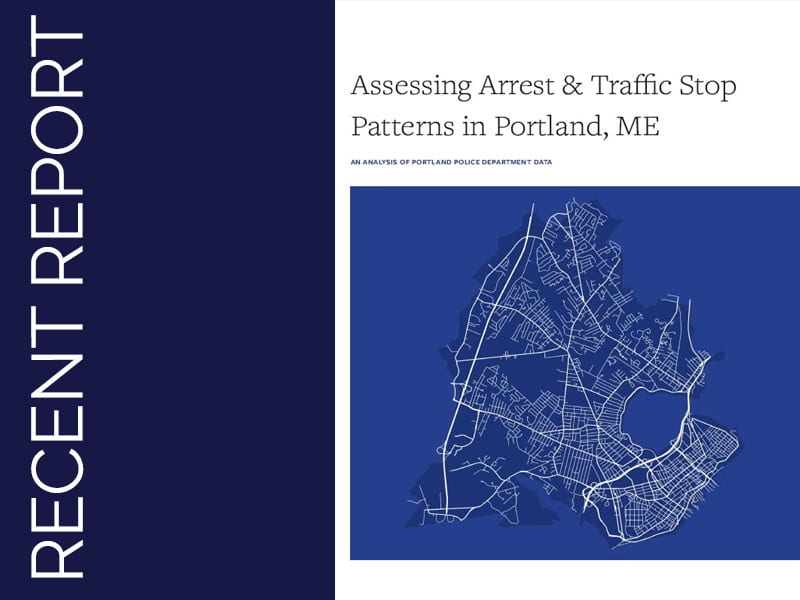In a just-released report, co-authored by the University of Southern Maine’s Catherine Cutler Institute and Northeastern University’s Institute on Race and Justice in the School of Criminology and Criminal Justice, researchers found no evidence that demonstrates severe or persistent occurrences of biased-based policing at the Portland Police Department. However, the study did find that Black or African Americans individuals experience disparities in arrests in Portland. Funded by the cities of Portland and South Portland and Northeastern University’s Roux Institute based in Portland, the study was commissioned to explore whether either of the departments engaged in disproportionate enforcement activities.
This project examined the available arrest and traffic citation data from the Portland and South Portland Police Departments to determine if there is any evidence of disproportionate enforcement activities in either city. This report outlines the findings of the analysis for the Portland Police Department and makes recommendations for next steps. The South Portland data analysis and findings can be found in a separate report.
The study looked at arrest and traffic stop data from 2018-20 and found that Black or African American individuals accounted for 17% of all arrests among Maine residents in Portland, and only 5% of the population estimate. The odds of black or Latinx individuals being arrested increased when the incident was initiated by the officer rather than initiated by a 911 call. The authors recommend that the Portland Police continue to explore these areas in greater depth (e.g., by officer, type of charges, patrol patterns, time of day, etc.).
Another important finding detailed in the study is that people experiencing homelessness represented over one-third of all the Portland PD arrests. Individuals who were unhoused at the time of their arrest were more likely to be White, men, between the ages of 40 and 59, and also more likely to be arrested multiple times throughout the study period. In addition, they were more likely to be arrested in the West Bayside neighborhood, which accounted for 52% of all arrests among people who were unhoused. Not surprisingly, this neighborhood also had the highest number of arrests during the study period at 33%.
View the reports for Portland and South Portland.
